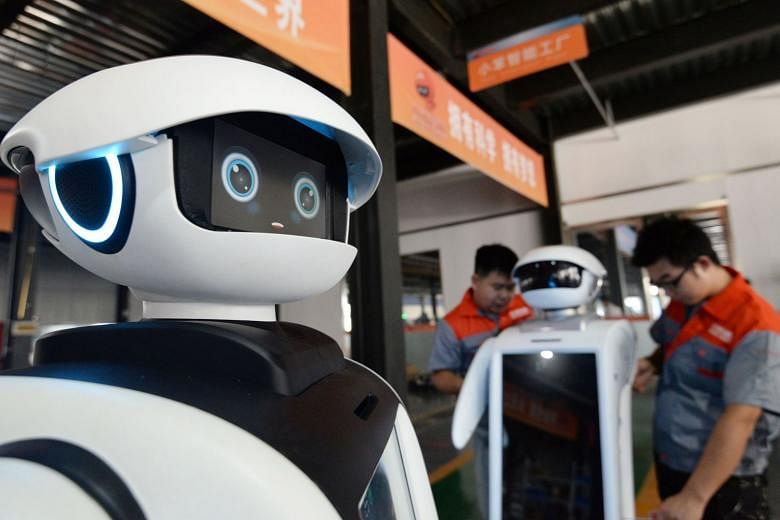WASHINGTON (WASHINGTON POST) - A new poll shows that in several countries around the world, large majorities of people believe it is most likely that robots will be doing much of the work done by humans within 50 years.
The effects of this technological leap are not viewed optimistically by most, however.
Instead, people largely say they think humans will struggle to find meaningful work and inequality will rise, the research found.
The poll was conducted earlier this year by the Pew Research Centre in Greece, Japan, Canada, Argentina, Poland, Brazil, South Africa, Italy and Hungary.
Pew also compared the responses in those countries to a poll done in the United States in 2015 that asked about automation.
In general, the poll found that majorities in most countries were in agreement that robots would soon do humans' work, with only limited differences in their views of how this would affect society despite some countries being advanced economically and others still developing.
In all of the countries surveyed, more than two-thirds were found to believe that automation meant that robots would take over work done by humans within a half-century.
In Greece, 52 per cent said this would definitely happen, while 39 per cent said this would probably happen.
Respondents were also asked about how automation would affect their countries. In each case, a large majority said it would make it difficult for ordinary people to find jobs, while a majority in most countries said jobs lost to automation would not be replaced by "new, better-paying jobs".
There were only three countries in which a majority thought automation would make the countries' economies more efficient - Japan (74 per cent), Poland (52 per cent) and Hungary (52 per cent).
In every country surveyed, a significant majority believed automation would worsen the existing inequality between the rich and the poor.
Despite these concerns, the general sense is that automation is inevitable. It is already happening in many countries, as Chinese e-commerce giant JD.com employs just four people at one facility where 200,000 boxes are packed every day, with the rest done by robots.
Pew's report noted manufacturing robots could cost as little as US$4 (S$5.47) an hour to operate, compared with an average hourly cost of US$36 for a human worker in the United States.
So how should workers prepare for this future?
With the exception of the United States in 2015, a majority in each country said the government had a responsibility to help workers acquire the right skills to adapt.
Many surveyed also said schools, employers and the individuals themselves have a responsibility to prepare for the changes - though Japan was an outlier, with respondents clearly viewing the government as obliged to assume more of the responsibility.

